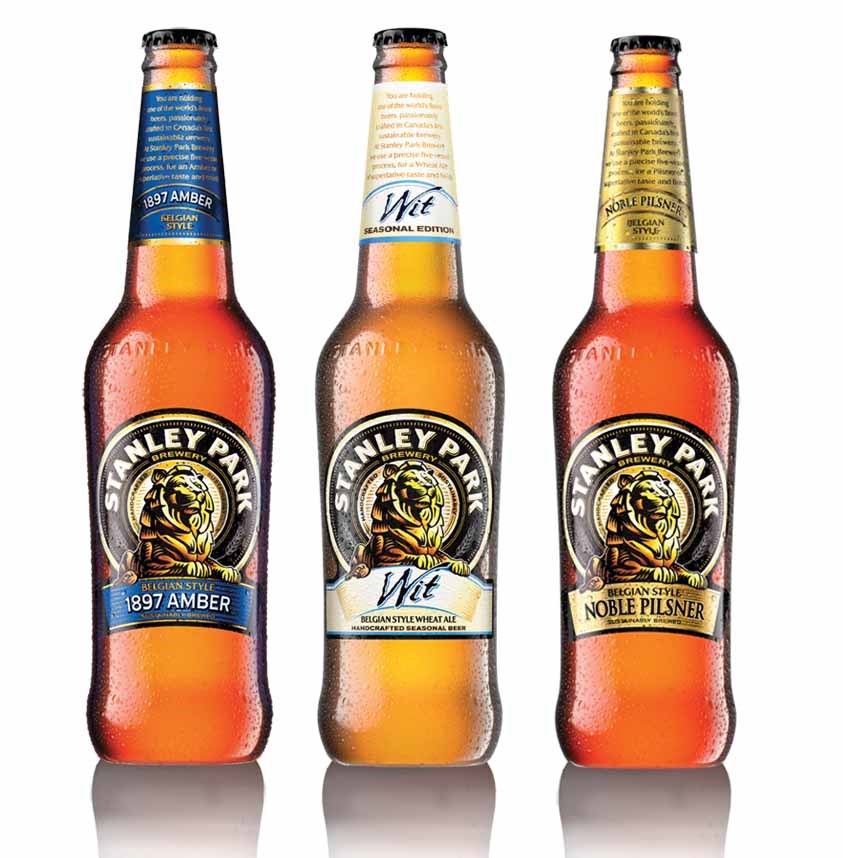Let’s get this out of the way: There’s nothing cool about Stanley Park Brewing, nor is there anything that we commonly regard as “craft”: no tasting room, no growler fill station, no trendy hats for sale.
This is not a mom ‘n’ pop shop. Stanley Park Brewing isn’t even really a brewery. It’s a brand of Turning Point Brewery, which also produces Hell’s Gate and is owned by the Mark Anthony Group, which also happens to own Mission Hill Winery, Mike’s Hard Lemonade, Palm Bay and others.
For the small group of (mostly) men that make up the beer writing community in BC, these are all grave transgressions that ensure Stanley Park is absolutely notcraft beer. In his book Craft Beer Revolution, Joe Wiebe wrote, “[Stanley Park]’s all about marketing and connections baby, but definitely not about the beer.”
This might’ve been the case at one time, but I’m not so sure anymore. In January, when I first met Jim Lister, general manager for Turning Point, he had recently been appointed chairman of the BC Craft Beer Guild. We chatted about Stanley Park’s reputation and he told me this story that, from his mouth, is one of unfortunate timing, missed opportunity and a Sisyphean slog for brand credibility.
It goes like this: The Mark Anthony Group lost the Western Canadian Corona distribution contract, which they had for close to 30 years, to Molson. To fill that void in their business, the company decided to start a brewery. This was in 2008. Molson hadn’t purchased Granville Island Brewery yet and Sleeman Brewery’s was the Canadian beer success story.
Turning Point Brewery was created with a focus on packaged beer that would appeal to a mainstream beer drinker. They built a big facility on Annacis Island and planned for dramatic growth. Turning Point launched Hell’s Gate first, and followed up with Stanley Park Amber in 2009.
Then Parallel 49 launched in 2012, which kicked off an unprecedented interest in new styles of beer and breweries. Suddenly, Stanley Park’s competing with a dozen new businesses that have tasting rooms and growler fill stations and a whole new business model that, given their size and corporate make up, Stanley Park couldn’t keep up with.
“That was the most critical time,” Lister says. “That was when new breweries were opening, or everyone and their brother was planning to open one. We had taken our foot off the gas, to some degree, about staying current and on-trend.”
What were these trends? Oh, y’know:
• Small (or at least perceived to be)
• Brewed locally (i.e., within stumbling distance)
• Growler fills
• Experimental in its approach to taste
• A bit weird
Stanley Park offered none of these things, and for 18 months before Lister joined the company, they faced an identity crisis. What kind of brewery did they want to be? They floundered.
Lister has helped turn this around. Stanley Park’s goal is now to create approachable craft beer for people who aren’t completely immersed in it.
“There are early adopters and innovators that the fringe has to offer,” says Doug Devlin, Stanley Park’s director of marketing. “Then, there’s the next wave of people that are interested in what’s happening in craft [but also] interested in something they can trust.”
Their approach is dictated by the 10,000-litre system in the brewhouse. They have to make a lot of beer to make a viable business.
“If you don’t make beer that appeals to enough people, you’re not going to sell enough,” Lister says. “The more flavourful that you make your beer, the less broad of an audience that you appeal to. There’s nothing wrong with that, that’s very attractive, but that’s only right for some brands. A brewery this size can’t sustain itself in a market the size of Canada if that’s all you do.”
Turning Point’s facility on Annacis Island is a more corporate environment then I’m used to seeing in other “craft” breweries. They do market research and base their new beers on that research. They use the word “portfolio” when discussing their lineup of beers.
None of this eliminates Stanley Park from being craft. It eliminates them from being perceived as “cool”, yes, but Lister says “cool” and “craft” are mutually exclusive terms.
“Craft is a philosophy,” he says. “Craft is a belief. Craft is the village approach to beer. We don’t ship across the country. We don’t ship to Thailand. We’re not chasing volume for the sake of volume. We take our time. We age lagers that we make here as long as anyone in the industry. We do it right because we can and we think it’s the right thing to do.”



